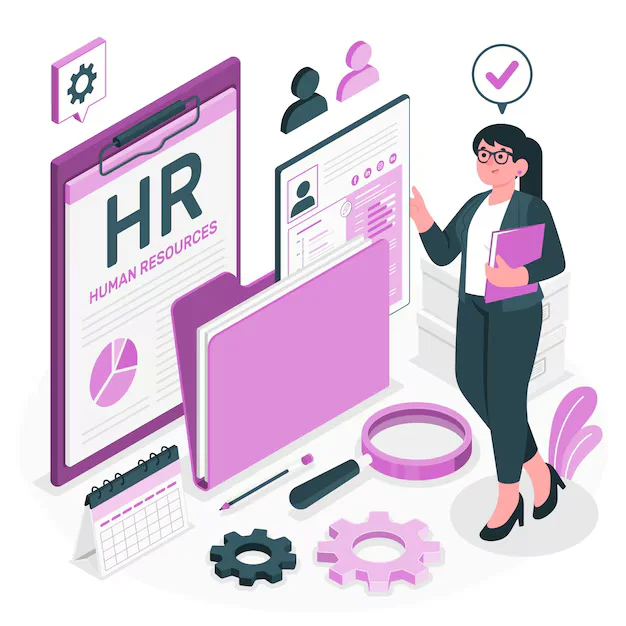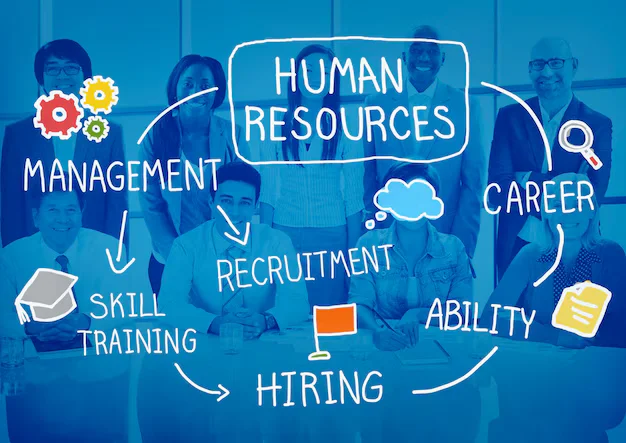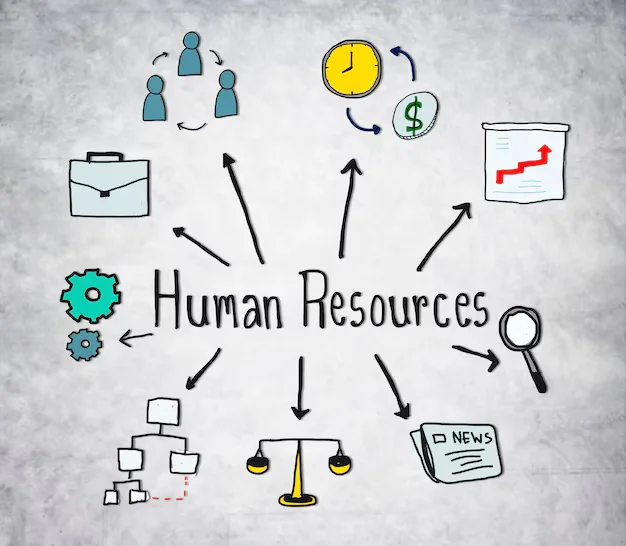Essential HR Roles and Structures for Your New Limited Liability Company

Starting a new LLC (Limited Liability Company) is an exciting endeavor that requires careful planning and consideration. When setting up your LLC, you should consider various factors such as deciding where to conduct your operations, choosing a business name, and the LLC cost by state. Your LLC costs include the state filing fees and the ongoing annual fees.
As your company grows, so will your workforce, making it essential to establish HR roles and structures that ensure smooth operations, compliance with employment laws, and employee satisfaction. Building an effective HR structure is vital for the success and growth of your Limited Liability Company business.
In this article, we will explore the essential HR roles and structures that will help you navigate the complexities of managing your new LLC business.
HR Leadership and Strategy for Limited Liability Company:
HR leadership plays a pivotal role in shaping the company's culture, ensuring legal compliance, and aligning with strategic goals while overseeing employment laws and human resources management.
When creating your Limited Liability Company, it is important to appoint an HR leader who can help set the strategic goals and ensure the organization's success through effective HR policies and HR department structure.
The appointed HR should understand workplace trends and be able to implement best practices related to employee attraction, retention, development, engagement, diversity, and inclusion. They should also have a good understanding of the HR legal obligations and labor regulations that affect your Limited Liability Company.
HR Policies and Procedures:

HR policies should include guidelines related to recruitment, onboarding, performance management, disciplinary actions, pay and benefits, equal employment opportunities (EEO), diversity and inclusion programs, safety protocols, and more.
These HR policies will help ensure a positive company's culture within your organization while ensuring legal compliance with health and safety regulations and other applicable laws.
HR processes should be documented, communicated to all employees, and regularly reviewed to ensure that your Limited Liability Company is up-to-date with changing laws and regulations.
Recruitment and Selection for Limited Liability Company:
As your LLC business grows, HR teams will need to conduct talent acquisition to hire additional valuable asset staff who have the skills and successful organization experience necessary for the role.
Implementing a structured recruitment process ensures that your company hires individuals with the right skills, experience, and cultural fit.
The HR's role here is to job descriptions, advertise vacancies, screen resumes, conduct interviews, and facilitate the selection and onboarding of new employees.
This also includes assessing candidates against specific criteria, conducting interviews, background checks, and reference checks.
Compensation and Benefits:
The HR function of compensation and benefits administration plays a critical component in the human resource management system, significantly impacting the attraction and retention of employees within the human resources department.
Your HR managers should develop a hierarchical structure that not only rewards performance but also aligns with your company's workforce planning, ensuring financial sustainability and effective outsourcing HR functions.
This includes determining salary bands, setting pay grades, developing employee benefits programs, and designing a compensation structure.
Key benefits administration roles handled by benefits administrators, including providing health insurance, retirement plans, and flexible working arrangements, are instrumental in securing and retaining talented employees within a functional structure. They should also ensure that all existing compensation structures comply with labor regulations.
Employee Engagement and Wellness for LLC:

The HR department ensures that activities aimed at enhancing employee engagement, collaboration, and innovation are proactively organized, boosting productivity and fostering a development programs-oriented culture in the workplace.
This includes fostering an environment of trust and respect, organizing team-building events, and promoting wellness initiatives.
Furthermore, the HR functions include developing talent management programs and initiatives like training and development opportunities, recognition programs, and employee feedback mechanisms. Being aware of employee needs will help to ensure that all staff members are engaged and motivated.
Additionally, it will create a positive company culture that supports employee growth and professional development of your Limited Liability Company partners.
Employee Relations for LLC:

A good HR should be focused on promoting a positive and collaborative workplace. They should ensure that all staff members are informed of their rights, responsibilities, and obligations in accordance with the company's policies and procedures.
The HR managers are tasked with monitoring employee relations and resolving conflicts effectively, a key aspect of maintaining regulatory compliance and ensuring a smooth employee life cycle.
They should provide employees with guidance on legal and ethical issues, respond to grievances, and monitor any changes in the workplace that could affect the employee's productivity. Additionally, they should ensure that procedures are in place to investigate claims of harassment or discrimination.
Performance Management:

The HR department is crucial in developing and implementing performance reviews, evaluating employee performance, and administering rewards or disciplinary actions, key to effective performance management. The goal is to ensure that employees are meeting expectations and contributing to the company's success.
HR professionals should also provide guidance to managers on setting objectives and expectations for their teams. They should track performance metrics such as attendance, productivity, quality, and customer satisfaction to ensure that employees are meeting goals.
A well-defined performance management process enables your Limited Liability Company to recognize and reward high performers, identify areas for improvement, and foster a culture of continuous growth and development.
Compliance and Legal Obligations:
As a critical component of human resources management, HR professionals ensure compliance with all applicable employment laws and regulations, safeguarding the matrix structure and labor relations of the company.
They monitor changes in laws, proactively update policies and practices to remain compliant, and protect the interests of your Limited Liability Company.
They also provide guidance on legal matters such as employee contracts, wages and benefits, safety regulations, leaves of absence, disciplinary procedures, termination processes, and more.
Furthermore, they should be proactive in addressing any potential risks or liabilities to protect the organization from lawsuits or other legal actions.
This includes implementing effective processes to handle employee complaints, grievances, and disputes in accordance with labor laws. They also manage personnel records, ensure proper documentation, and handle issues related to employee privacy and confidentiality.
Training and Development for Limited Liability Company:

A well-structured training and development program managed by the HR functions helps employees reach their full potential, aligning with the succession planning and career planning strategies of the HR structures, boosts morale, increases job satisfaction, reduces turnover rates, and contributes to the overall success of your LLC.
HR professionals should develop and implement strategies to ensure that employees have the necessary skills, knowledge, and resources to be successful.
They create learning and development opportunities for employees at all levels, such as workshops, seminars, online courses, conferences, and more.
HR Technologies and System for Limited Liability Company:
Implementing an effective HR information system (HRIS) is essential for streamlining HR processes and maintaining accurate employee records.
The HR software solution should automate tasks such as payroll processing, paystub templates management, benefit administration, performance management, and employee record-keeping.
Utilizing technology can help reduce administrative burdens, increase accuracy, and provide valuable insights through data analytics.
Final Thoughts
In conclusion, establishing a solid HR framework is essential for the success of your new LLC business. By assigning the right HR roles and implementing the necessary structures, you create a strong foundation that supports your employees and aligns with your business objectives. Remember, investing in HR from the start will contribute to the long-term success and growth of your LLC.

